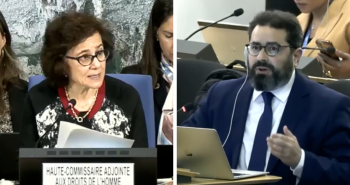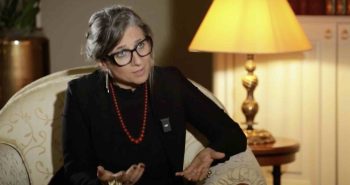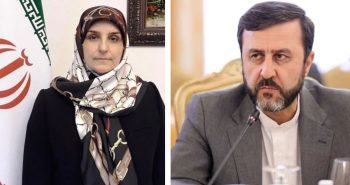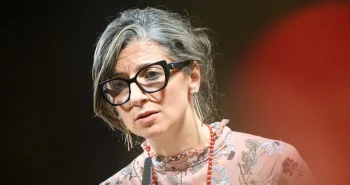
When PLO Chairman Mahmoud Abbas wanted a UN venue to deliver a harsh monologue against Israel, allowing no replies, the Human Rights Council broke convention, allowed a “special meeting” format, and rolled out the red carpet on Oct. 28th. Yet when Venezuela’s president followed two weeks later with the same request, the UNHRC was forced to allow it, on Nov. 12th — but then right afterward met to effectively ban the practice again. Minutes below.
———————-
UN Human Rights Council Bureau
Minutes of December 2, 2015 Meeting
- Modalities for “special meetings”
Following up to its meeting held on 6 November, at which the Bureau decided to further discuss the holding of “special meetings” outside of regular Council sessions, the Bureau held an in-depth discussion on this matter recalling the concerns expressed and the systemic challenges faced by the Council in regard to such requests.
Upon thorough reflection on this matter and with a view to possible future requests, the Bureau agreed that “special meetings” outside of regular Council sessions should be strongly discouraged in the future for the following reasons:
- The Bureau noted that HRC resolutions 5/1 and 16/21 do not provide for the Council to hold “special meetings”. The possibility to convene special sessions is however foreseen, if the Human Rights Council was to meet outside of regular sessions. It was noted that special sessions of the Council should “be results-oriented and geared to achieving practical outcomes” (para. 128 of HRC resolution 5/1).
- The Human Rights Council, when in session, is open to receive high-level dignitaries, including Heads of State or Government, particularly during its High-Level Segment pursuant to para. 116 of HRC resolution 5/1, while such dignitaries may also address the Council at its regular sessions on an ad-hoc basis. “Special meetings” could have a negative impact on these opportunities presented equally to all Member States and could possibly undermine the existing Council procedure and practice foreseen for such visits.
- The Bureau also recalled that the principles guiding the Council’s work, as outlined in HRC resolution 5/1, stressed the need for constructive dialogue with members and observers of the Council, upholding the Council’s institutional integrity. In this context, “special meetings” were considered as not conducive to dialogue as statements and rights of reply may be considered inappropriate. Perceptions of politicization may also arise. The Bureau agreed that, whenever the Council meets, the broader human rights context is always of great importance, including contextualization, in particular through the High Commissioner.
- The Bureau also noted the unforeseen financial implications of “special meetings” of the Human Rights Council.
- When the Council was not in session, the Bureau agreed that the existing opportunities and arrangements for a visit by a Head of State organised by the Director-General of UNOG would be most suitable to address all UN Member States.





